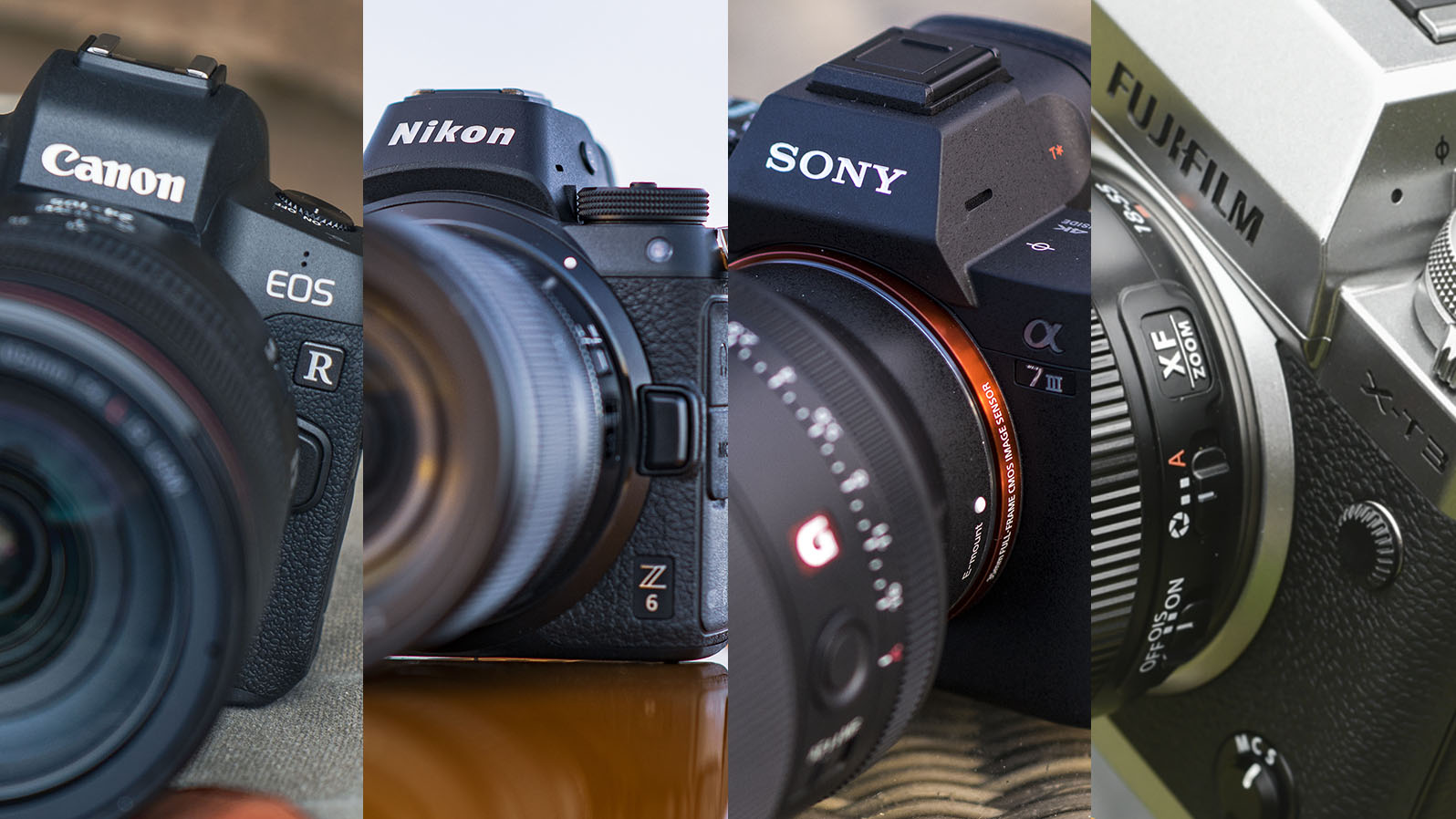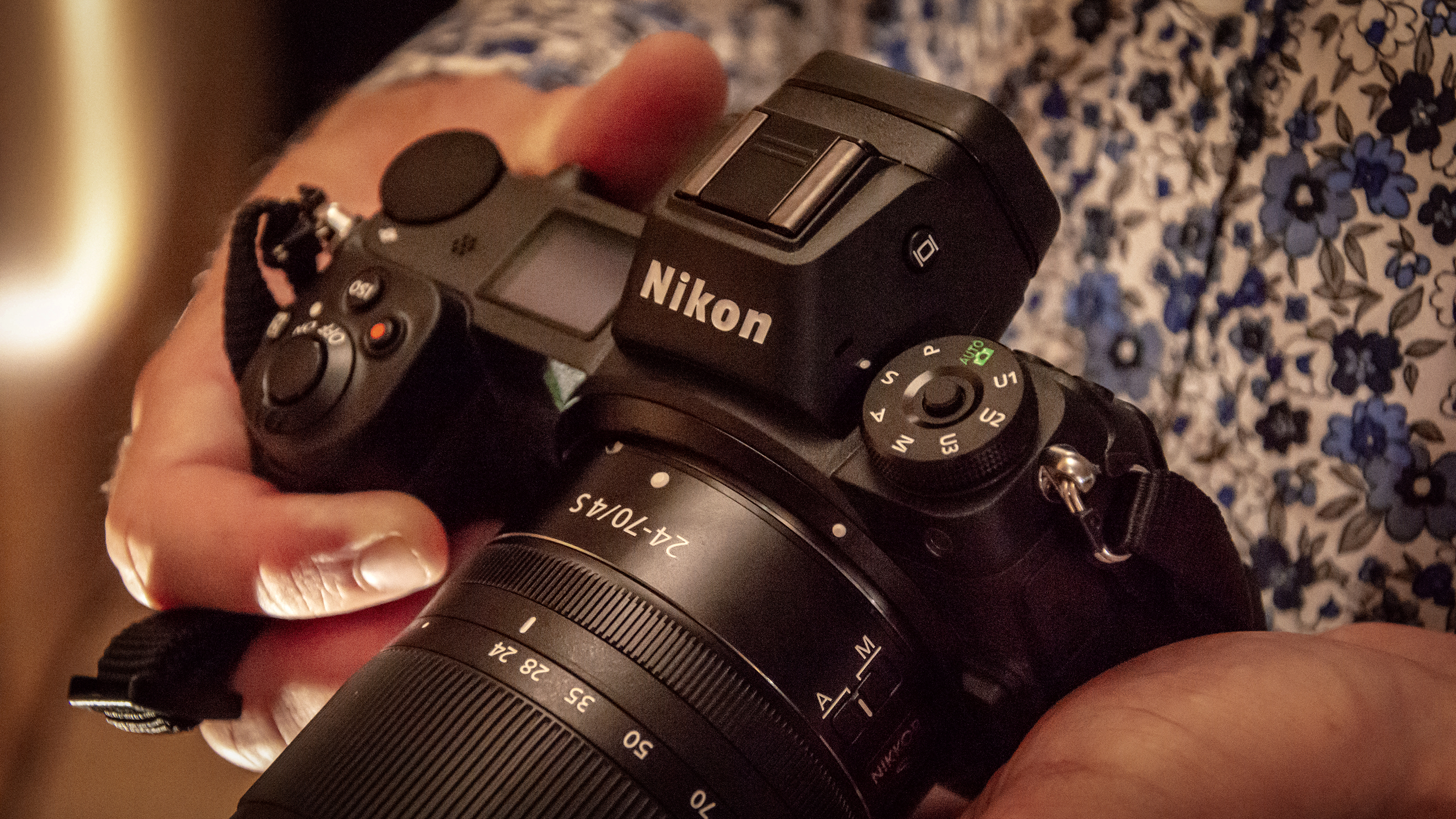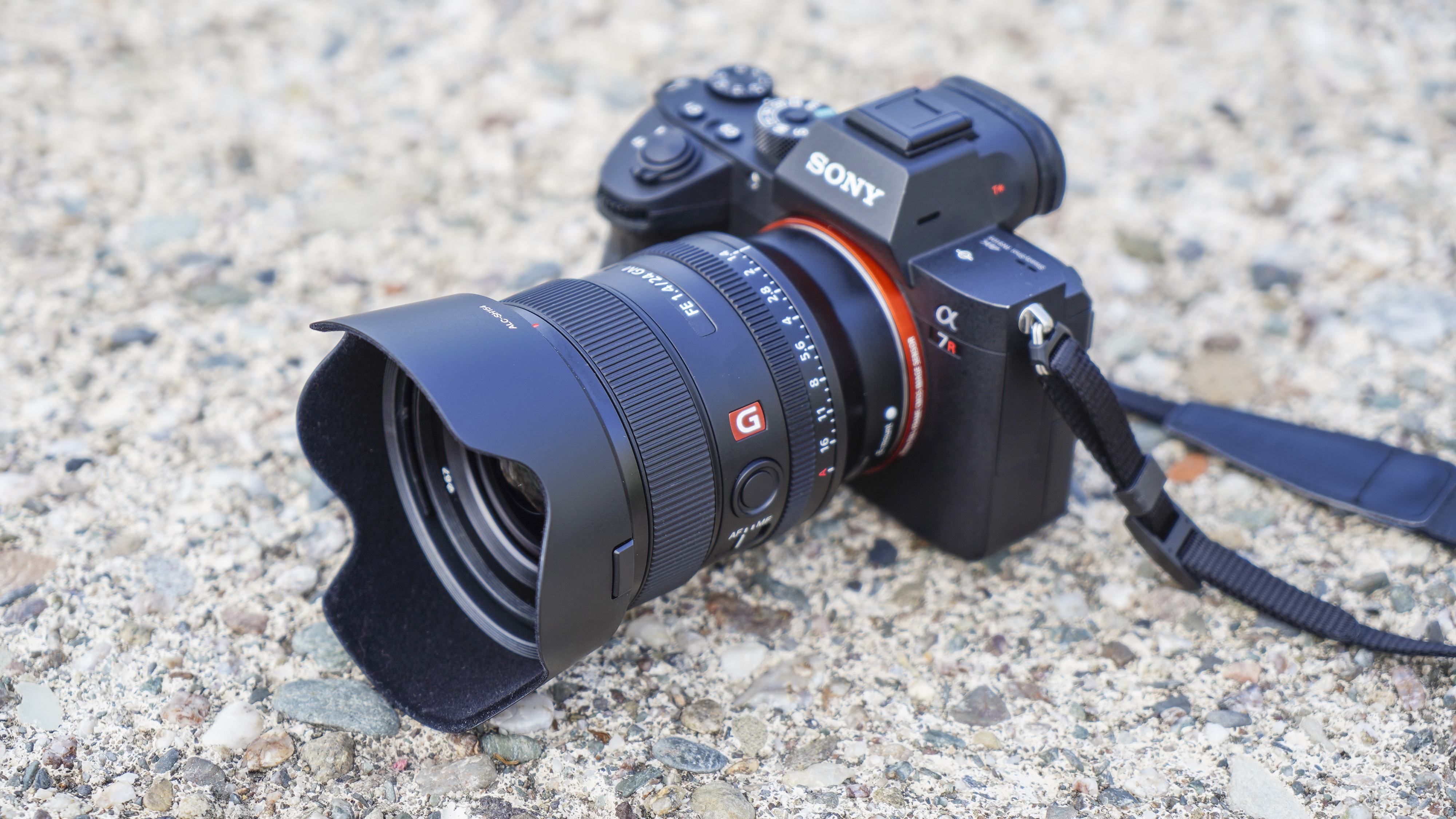Cameras 2018: a year in review
What were the highlights of 2018 for the photographer?

Sign up for breaking news, reviews, opinion, top tech deals, and more.
You are now subscribed
Your newsletter sign-up was successful
It’s difficult to deny just how eventful this year has been for the photography industry. From long-awaited arrivals to the full-frame mirrorless camp to the shock of Panasonic joining up with Sigma and Leica to crash the same party, this year has pleased and surprised photographers in equal measure.
And that’s before we even start two consider the growing strength of smartphones, the glut of new lenses, huge updates to software and apps, and a whole sea of accessories that have arrived to make the photographers life easier and more fun. Here, we take a look at the most significant products from the major camera manufacturers.

Canon

2018 was the year that Canon finally joined the full-frame mirrorless camera sector, launching the line with its EOS R model. Much like Nikon’s recent Z-series cameras, the camera arrived with a fresh collection of (very nice) lenses and the option to use existing lenses through an adapter (or three, in Canon’s case). While we loved the camera’s image quality, video limitations and some of Canon's decisions with its design ultimately left us with mixed feelings.
The EOS R was clearly the company’s highlight, but its activities elsewhere meant it ended up being the most prolific of the big names. Its budget EOS Rebel T7 / EOS 2000D and EOS Rebel T100 / EOS 4000D revamped its entry-level DSLRs portfolio, while the PowerShot SX740 HS and SX70 HS gave superzoom fans something fresh.
On top of that there was the EOS M50, which finally brought 4K video recording to the EOS M series, as well as four new L-series EF optics and the EF-M 32mm f/1.4 STM lens for its EOS M system, all rounded off by printers and a new flashgun. So the year ends on a high for Canon, with its core lines strengthened and the very real potential for cameras on either side of the EOS R to follow shortly.

Nikon

After blowing out 100 candles in 2017, Nikon kicked off its next 100 years with the launch of a brand new system. The full-frame mirrorless Z6 and Z7 arrived alongside three new lenses and many promises of what was to come, and the laudatory reviews suggest that the company has got many things right from the start. And we’ve forgotten all about that card slot nonsense, haven’t we?
With so much attention on its new Z system, Nikon had an understandably quiet year otherwise, but there were a few new surprises. Releases included the beastly Coolpix P1000 camera, whose 125x optical zoom equivalent to 24-3000mm in 35mm terms isn't quite without its challenges in use, while the D3500 revamped the baby D3400 with a redesigned body and a stronger battery.
Sign up for breaking news, reviews, opinion, top tech deals, and more.
Those keen to supplement their higher end DSLRs with some tasty glass had the surprisingly compact AF-S Nikkor 500mm f/5.6E PF ED VR to occupy them, while the more niche AF-S Nikkor 180-400mm f/4E TC1.4 FL ED VR aped the design of Canon’s EF 200-400mm f/4L IS USM Extender 1.4x, with its built-in teleconverter.

Sony

While this year ends with a very different mirrorless landscape to how it began, Sony’s original full-frame mirrorless A7 series continued to show its relevance with the A7 III, a model that fast became the camera everyone seems to want.
With its combination of built-in image stabilisation, 4K video, a comprehensive autofocus system and speedy burst shooting, the A7 III is certainly one of the most well-rounded full-frame mirrorless cameras in recent times, and it's price tag isn't as prohibitive as may be expected.
Elsewhere, the company bolstered its Cyber-Shot range with four new models, one being the impossibly small RX100 VI, which packs a 24-200mm lens and a 1-inch sensor. We only saw three lenses from the company since the start of the year, although two of these, namely the FE 24mm f/1.4 GM and FE 400mm f/2.8 GM OSS, certainly strengthen the case for the company’s full-frame bodies, even if they're not exactly cheap.

Fujifilm

If anyone deserves a breather this year it’s Fujifilm. With four new mirrorless X-series models, a new medium format rangefinder and new additions to its waterproof, compact and instax lines, all rounded off by a sextuplet of lenses, the company has worked tirelessly to keep its lines up as relevant and tempting to enthusiasts as they’ve proved to be in the past few years.
2018 saw new additions across the full scope of its mirrorless range, from the basic but budget-friendly X-A5 to the X-H1 flagship option. There was also the X-T100, a handsome but somewhat middling upper-entry-level proposition, although it was the X-T3 that impressed us the most, with its compelling mix of excellent stills, superb video and all-round performance packed into a handsome shell.

Olympus

With just a single camera release this year and no new lenses, Olympus’s imaging division had one of the quietest years for some time. The camera in question was the E-PL9, a relatively gentle refresh of the existing E-PL8, rather than a new OM-D series model or an update to its handsome but ageing PEN-F as some were expecting.
The lack of much activity was all the more surprising when you consider that this followed a relatively quiet 2017, which welcomed only the OM-D E-M10 Mark III and Tough TG-5 cameras along with the M.Zuiko Digital ED 45mm F1.2 Pro and M.Zuiko Digital ED 17mm F1.2 Pro lenses. The additional news that Micro Four Thirds partner Panasonic has joined forces with Leica and Sigma for its L-mount alliance has also led some to question exactly what the Micro Four Thirds future looks like.
Still, next year looks set to be much more active, with the company celebrating its centenary in October. Right now it’s commissioning a group of ambassadors to capture portraits of those also celebrating their 100th birthday this coming year, the fruits of which set to be exhibited in a gallery in London, as well as within an accompanying book. Rumours of a new flagship model continue too – Olympus will be one to watch throughout 2019.

Panasonic

Micro Four Thirds proponent Panasonic is probably the last company you’d expect to be involved in a new full-frame camera system, but that’s exactly what was announced during this year's Photokina. The company revealed that it had agreed to a strategic partnership with Sigma and Leica, dubbed the L-mount alliance, and that it would kick off 2019 with the S1 and S1R full-frame cameras and four new compatible lenses.
This being the major shock announcement of the year has somewhat overshadowed its other releases, namely additions to its compact and mirrorless lines and a new Leica-branded DG Vario-Elmarit 50-200mm F2.8-4.0 ASPH Power OIS lens. The video-focused GH5S came early on in January, before the GX9 and SZ200 / TZ200 arrived a month later, and the everything-proof Lumix TS7/FT7 washed ashore just in time for the summer holidays. A further bonus for Asian markets also came by way of the GF10 / GF90, a very minor update on the more widely available GX800 / GX850 / GF9.
The launch of the LX100 Mark II, which updates the venerable but respected four-year-old LX100, also showed its commitment to enthusiasts keen on image quality but less keen on the faff of interchangeable lenses, with a large Four Thirds sensor at its heart and a host of improvements to the bones of the original model.

Ricoh

Much like Olympus, Ricoh didn’t have too much to shout about this year. Its only release was the Pentax-branded K-1 Mark II, an update over the existing K-1 model so modest that the company offered users of that camera a conversion to the newer one for a small fee.
While no new lenses, flashguns or other accessories joined either the Ricoh or Pentax stables, the company did promise that the Ricoh GR III would arrive before long, confirming its headline specs to persuade loyal fans to stay with the brand. Due for release early next year, the camera is set to update the GR II that surfaced in 2015.

Leica

Leica seemed keen to cater to as wide an audience as possible during 2018, releasing five cameras from the affordable end of the spectrum to the… well… Leica side of it.
The C-Lux and D-Lux 7, which are essentially Panasonic’s ZS200 / TZ200 and LX100 Mark II models in fancier getup, arrived for keen enthusiasts, while the M10-P sought to provide an alternative for would-be M10 users wishing to do more damage to their wallets.
The M10-D arrived two months later for the benefit of anyone who hates LCD screens, while a ‘Stealth Edition’ variant of its Leica M Monochrom (Typ 246), complete with fluorescent engravings, was also unveiled.
And that wasn’t all. There was also last month’s Q-P model, a more discreet restyling of the original full-frame Q model, as well as a launch of the some new lenses, a flash and even a remote. Rounding things off was the expansion of its Leitz Park complex in Wentzlar, Germany, as well as the launch of a FOTOS app for iOS and Android users. So, a busy but well-rounded 2018 for the German photo stalwart.
